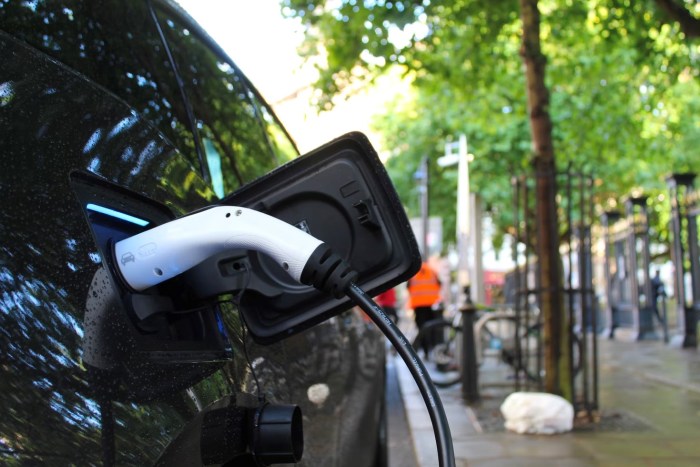There have been many revolutions in the engineering of passenger vehicles. First, in the late 1800’s came the automobile. Less than twenty years later, the first consumer car, the Model T was put into production. Over time, engineers kept improving cars and made them faster, safer, and better for the environment. Just a decade ago, cars that operate just as well as traditional fuel burning models began hitting markets around the globe. Every year these cars keep getting better, and it looks like they are the future of transportation.
The Green Transportation Revolution is sweeping across the United States, fundamentally reshaping the way we move. In this era of environmental consciousness, the shift towards sustainable mobility solutions has never been more evident. From the widespread adoption of electric vehicles, saving both the environment and your wallet from the burdens of high fuel costs, to the promising emergence of driverless cars poised to make our roads safer and more efficient than ever before, this article explores the exciting journey toward a greener future in transportation. Countries like Norway, Germany, and France have even proposed phasing out gas-powered vehicles altogether, demonstrating a global commitment to cleaner, more sustainable modes of transport. Discover the full story of this transportation revolution and how the USA is leading the way on escootersstores.
1. Green On the Streets and in Your Wallet
The appeal of an eco friendly vehicle is pretty obvious, when you take a look at how much money owners save on fuel costs. According to a report from Business Insider Americans in some states spend an average of over $1,300 per year on fuel alone. If you are the victim of a car accident, contact Philadelphia Injury Lawyers P.C. for a free consultation!
Internationally, many countries such as Canada have introduced extra taxes on fuel inefficient vehicles. Some countries, including Norway, Germany, and France have all proposed banning the sale of new gas powered vehicles. It seems that many countries see the harm that burning fuel causes to the environment, and are willing to push consumers to more efficient and clean transportation options, such as gas or electric powered cars. The use of these as power sources has garnered criticism as to whether or not natural gas is a reliable renewable resource, but natural gas been proven to be just as renewable and green as electric hybrids of today.
Studies have proven that “greener” vehicles do not just save consumers in taxes and fuel though. Electric cars can save owners quite a bit of money over time in maintenance. Since electric vehicles tend to need less engine maintenance, the cost of repairs and upkeep drop drastically.
2. Safer Roads and Better Fuel Efficiency
Today the roads are full of electric cars. While they certainly are the future, every driver is surely interested in what comes next. With driverless cars increasingly entering highways around the world, it would seem that the future of efficiency is with automated driving.
According to an article in Forbes, driverless vehicles could reduce fuel consumption in passenger vehicles by as much as 44 percent and 18 percent for trucks. That is an enormous impact for the environment. This reduction is due in part to the amount of time the cars are in use. With driverless cars, commuters could share vehicles and each passenger vehicle would spend less time idle, depreciating in value and wasting resources.
Self driving cars are already incredibly safe, and that is in part because they are programmed to strictly follow all traffic laws. According to a CNN report 90% of traffic accidents are caused by human error. These accidents could be reduced by fuel efficient driverless vehicles.
3. Making Your Current Ride More Efficient
Not all of us can afford to pony up the cash for a new electric vehicle, but that does not mean you can’t be more environmentally friendly with your current car or truck. There are plenty of ways to help make your vehicle and commute efficient. One simple way to reduce your use of fossil fuels is to minimize trips and idle time. If you sit in a drive through or traffic regularly, turn off your vehicle. The Environmental Defense Fund suggests turning off your vehicle if you idle for more than 10 seconds at a time.
Performing maintenance at scheduled intervals also keeps your vehicle in great condition, which helps it stay at its peak efficiency. Replacing spark plugs, keeping clean air filters in your car, and airing up tires to the manufacturer’s specified pressure can all improve your vehicles overall performance.
Please keep in mind that it is recommended to contact a car accident lawyer if you are hurt in a car accident. Your lawyer will gather the evidence and deal with your insurance company to ensure that you get the maximum compensation you are entitled to.
Lastly, driving fast consumes more fuel. Following the speed limit and posted directions, avoiding fast braking and acceleration, and using cruise control on the highway can help save on gas.








